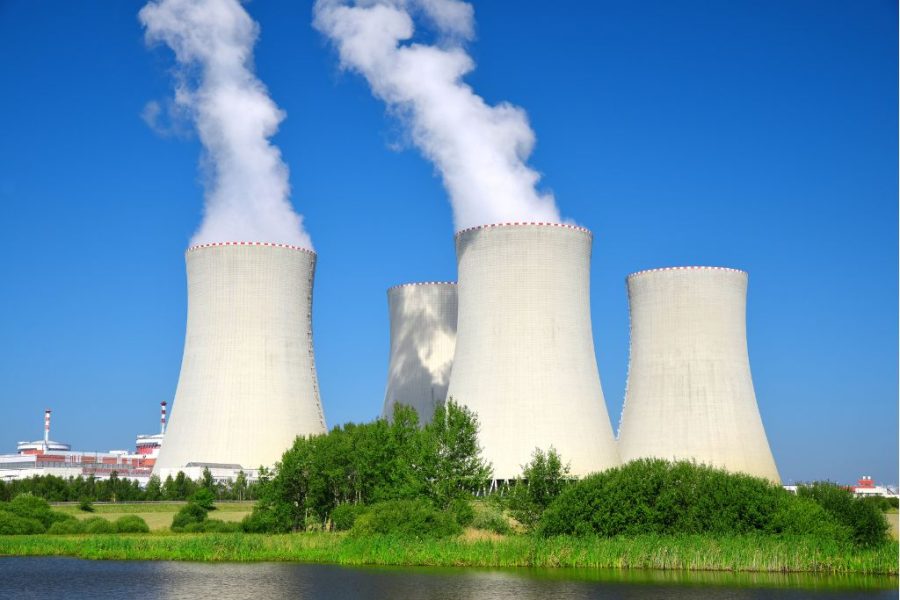
As we try to reduce carbon emissions, we need to decide if we should keep using nuclear power or focus more on fossil fuels and renewable energy. Let’s explore the pros and cons of nuclear energy to understand if nuclear energy is a good alternative to planet-warming fossil fuels.
—
Nuclear energy is a special kind of energy that comes from the centre of an atom, called the nucleus. This energy can be used to make electricity. There are two types of atomic reactions used to create this energy: nuclear fusion and nuclear fission.
When we use nuclear fission, we use a special kind of fuel called uranium. Uranium is used in a reactor, and it makes the atoms split into two or more pieces. This splitting creates a lot of heat. The heat is used to make water boil, and the steam from the boiling water spins turbines. These spinning turbines create electricity.
Nuclear energy has been around for a long time. In the past, we mostly used fossil fuels like coal, natural gas, and oil to make electricity. But now, more and more countries are using nuclear power because it is cleaner and doesn’t harm the environment as much as fossil fuels do. Nuclear power plants started operating in the 1950s and have been a good alternative to oil and gas.
Today, around 10% of the world’s energy comes from nuclear power. There are 439 nuclear power plants in 32 countries, and more are being built. Countries like the United States, China, and France use a lot of nuclear energy to make electricity. France, for example, gets 70% of its electricity from nuclear power.